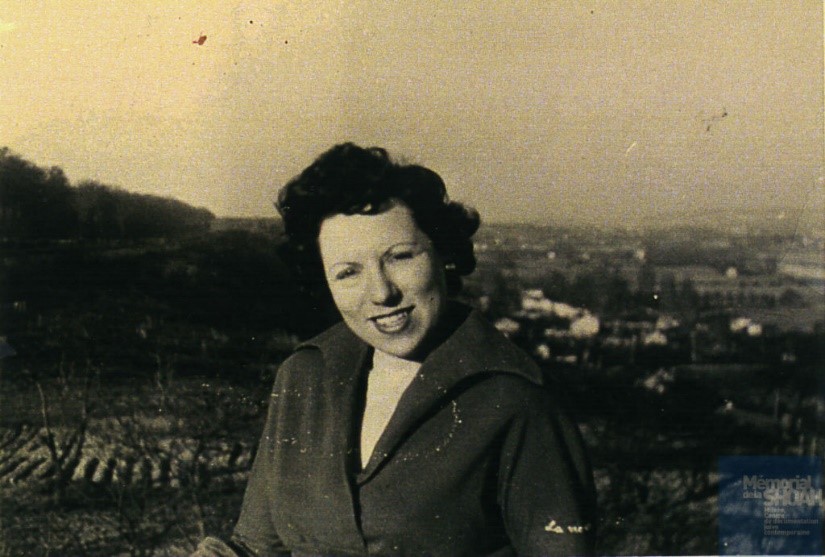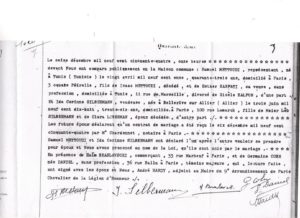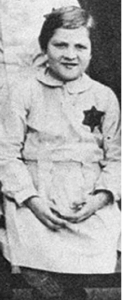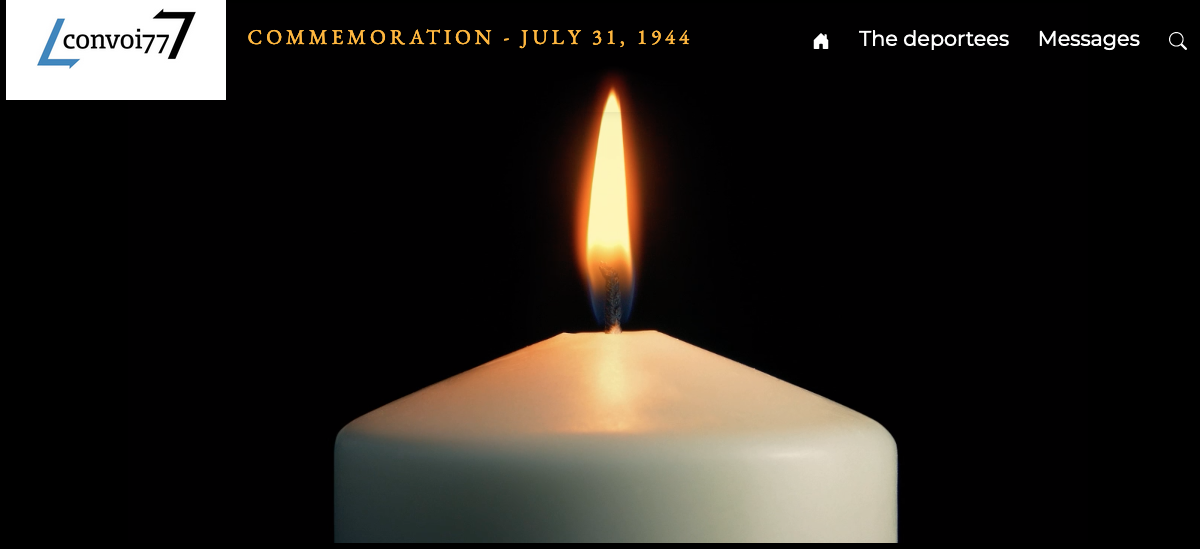Ida SILBERMANN
Photo of Ida Silbermann. Source: the Shoah Memorial website
Ida, Corinne Silbermann was born on June 3,1918 in Bellerive, in the Allier department of France. She was born a Russian citizen and was granted French citizenship by naturalization on March 22, 1934.
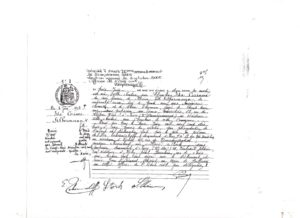 Ida Silbermann’s birth certificate. Source: Bellerive town hall archives
Ida Silbermann’s birth certificate. Source: Bellerive town hall archives
Ida’s mother was Clara Silbermann, a Romanian citizen who did not work outside the home. She died on December 1, 1937, before the war, but we have no further information about her death. Her father, Meier Silbermann o known as Max, was Russian and worked as a chemical engineer. He was born in 1879.
Ida had a brother, Henri Silbermann, who was born on July 7, 1912 in Paris. He worked in the petrol import business. He was arrested on July 21, 1944 at Saint Didier du Mont d’Or in the Rhône department of France, under the name Henri Chevalier. He died in the Mauthausen camp in Austria on March 18, 1945.
Before the war they lived at 28 rue du Château d’Eau, in the 10th district of Paris.
Ida was arrested together with her father at their home at 274 rue de Créqui in Lyon, under the names Irène and Maxime Sicard, on June 28 or July 6, 1944 (depending on the source, the dates differ). The Gestapo arrested them following a tip-off about her father.
Ida had studied journalism before the war and was a journalists’ secretary before she was arrested. According to her medical card, dated July 3, 1944, her address during that time was 13 avenue du Maréchal Foch in Nice, in the Alpes-Maritimes department of France.
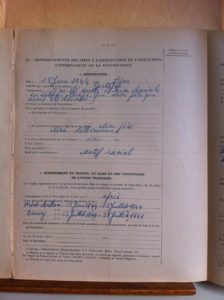 page 3 of the request for political deportee status
page 3 of the request for political deportee status
They were taken to the Fort de Montluc jail in Lyon, where they stayed from June 28 to July 23, and then transferred to Drancy. However, according to the records we have, the dates of arrest and internment differ: the above record states that Ida/Irène was arrested on June 28, 1944, interned in Fort de Montluc until July 23, then transferred to Drancy, where she remained until July 31, the date on which Convoy 77 set off for Auschwitz.
Convoy 77, which was one of the last to leave Drancy, took them to Auschwitz. The transport was made up of 986 men and women and 324 children. Over 75% of the deportees were under the age of 50, and 125 were children under the age of 10.
Her father was murdered shortly after he arrived in the camp, between August 3 and 5, depending on the source. As for Ida, she survived, after being held in the camp for several months. Her deportee number was 217 508 875.
She stayed in Auschwitz until November 15, 1944, when she was transferred to the Liebau camp in Poland, from which she was liberated by the advancing Allies on May 8, 1945. She was repatriated to France on June 4.
When she left the camp, she weighed just 20 kilos and was suffering from asthenia (weakness and fatigue).
After the war, on December 16, 1954, she married Samuel Mettoudi, who was born on April 20, 1911 in Tunis, Tunisia, in the town hall of the 9th district of Paris. She was a shop assistant at the time.
Ida Silbermann and Samuel Mettoudi’s marriage certificate. Source: the town hall of the 9th district of Paris
The couple had one daughter, Josiane Mettoudi.
On December 4, 1956, Ida submitted a request for the status of political deportee, although this was only granted nearly twenty years later on March 9, 1973. She was awarded compensation for herself and, posthumously, for her father, of 12,000 francs, to which she, as his heir, was also entitled.
In 1973, Ida living at 3 Square Petrelle in the 9th district of Paris. She died in Paris on September 23, 2005.
Sources
- Various records kindly provided by the Convoy 77 project team.
- Photos, the Shoah Memorial website.
- Ida Silbermann’s birth certificate, the Bellerive town hall, in the Allier department of France.
- Ida Silbermann and Samuel Mettoudi’s marriage certificate, the town hall of the 9th district of Paris


 Français
Français Polski
Polski